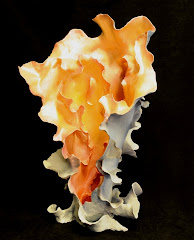It's convenient to label ignorance or brilliance, real or perceived, according to a Party affiliation or some other inculcation. But in the end, it's either ignorance or brilliance free of partisan labels when compared to the nearest accurate assessment we can make of Reality with as clear lenses as we can manage. If we don't, in our political, religious, social, or any other bearing divorce ourselves from the coloration of our unconscious and learned prejudices, we will fail in the most basic facet of authority. That facet is accuracy relative to an impartial and unbiased factual assessment of any situation as nearly as possible with the admission that error is inherent, especially in emotionally loaded situations where we or something we care about is at stake.
There is much that can be said about this that would for many require a thorough re-education in the ways and means of human perception, thinking, and feeling. Most of us can't do it very well at all, and if democracy has a serious failure it is this: it gives equal weight in popular decision making to fact and fantasy. And in many cases, fantasy wins, sometimes with tragic results.
So it's good in the midst of heated politics to remember that our views are not only limited, they are limited heavily by unconscious training that is indistinguishable from addiction. It can take an actual physical shock to bump one the inch or so out of their habits to see that they are merely thought patterns and not in any way equatable to the reality the "owner" who thought they were a thinker thought.
This is demonstrable by experience. It is what Plato's Cave Analogy refers to. In its extreme, there is possible a radical shift in the nature of one's awareness. That result is not advertised, despite its utter practicality as being a basis for a re-evaluation of one's real circumstance as a human. Such re-evaluation can take as long as two or even more years as the new perspective is integrated. It's why it used to be attempted only in monasteries and under tutelage. Yet it can happen spontaneously. I know of several such cases.
Even Heinlein in his fiction outlines a radical scale of intellectual ability and its consequences. Yet even he doesn't go the final step, though he implies it. That's because it is so different, that in the religious writings of the world it is cloaked in symbolism. Yet it is the one consistent thing in the matter of human awareness regardless of religion, culture, time, place, gender, status, or any other factor including contact with others who have experienced that shift.
But the essence of it is in clarity, a kind of clarity which is free from political, religious, social, or any other categories. It is the foundation of the beginning of actual work on oneself, if one is so motivated. It is also dangerous in the sense that one man said that "The search for Reality is the most dangerous undertaking; it *will* destroy your world". Why? Because we are taught what we are, and what the world is, in terms of necessary local beliefs which do not usually transfer to a universally true perspective.
That perspective is infinitely adaptable, but can be dangerous to the individual who sees that way, as it reveals much of how the locals, wherever and whoever they are, really don't see themselves clearly, and therefore mistake their environment as well, sometimes tragically while they believe they are pursuing their own wellbeing and that of others. That's only natural, as that's how we are locally trained. But what we are as awareness isn't local. Everyone is it, no matter who, when, or where or in what condition. It is the one thing in which all humans are equal: We are beings of awareness trained in minute detail to believe local things to be universally true. And they are not. So when local perspectives collide, we have actual drama. The definition of "drama" is "what's at stake". And that can be trivial. Or it can cast the fate of a Nation.





















No comments:
Post a Comment